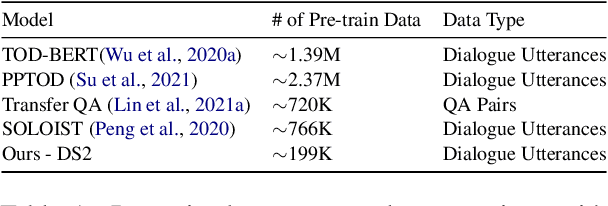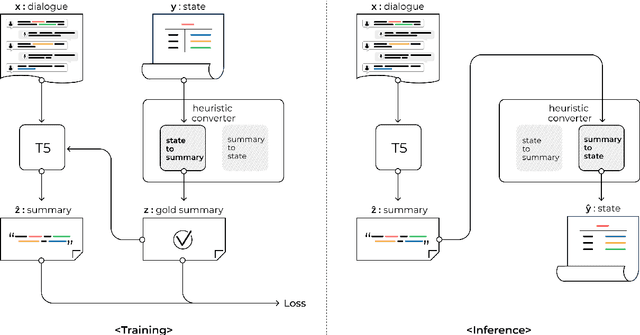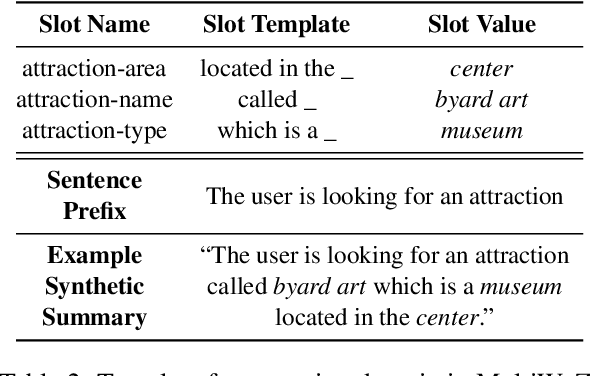Dialogue Summaries as Dialogue States (DS2), Template-Guided Summarization for Few-shot Dialogue State Tracking
Paper and Code
Mar 03, 2022



Annotating task-oriented dialogues is notorious for the expensive and difficult data collection process. Few-shot dialogue state tracking (DST) is a realistic solution to this problem. In this paper, we hypothesize that dialogue summaries are essentially unstructured dialogue states; hence, we propose to reformulate dialogue state tracking as a dialogue summarization problem. To elaborate, we train a text-to-text language model with synthetic template-based dialogue summaries, generated by a set of rules from the dialogue states. Then, the dialogue states can be recovered by inversely applying the summary generation rules. We empirically show that our method DS2 outperforms previous works on few-shot DST in MultiWoZ 2.0 and 2.1, in both cross-domain and multi-domain settings. Our method also exhibits vast speedup during both training and inference as it can generate all states at once. Finally, based on our analysis, we discover that the naturalness of the summary templates plays a key role for successful training.
 Add to Chrome
Add to Chrome Add to Firefox
Add to Firefox Add to Edge
Add to Edge